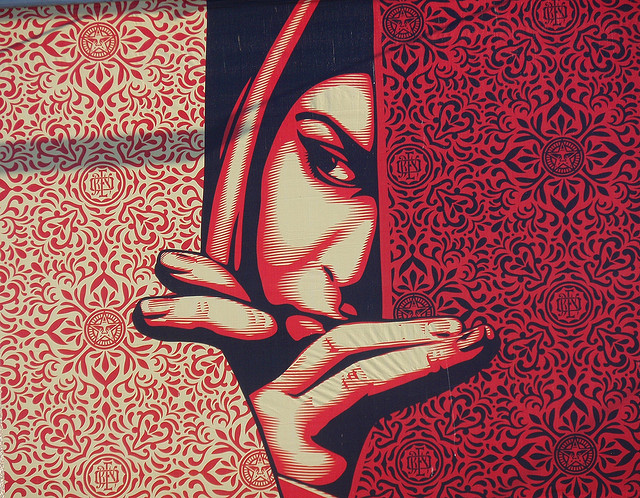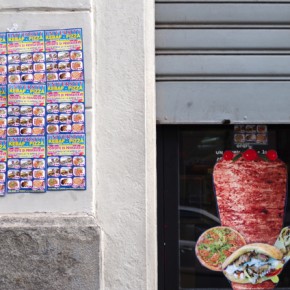The two-state solution has one to two years left before it is finished. So stated John Kerry to Congress. That the Secretary of State even hints at the possibility reinforces the idea that a new era is upon us, which many have been proclaiming for some time. The two-state solution is in fact dead. The question is where to go from here.
If a solution along the lines of the international consensus which has held for many years – two states, shared Jerusalem, and a resolution on refugees that both Israelis and Palestinians can live with, whatever that might be – is no longer viable, Israel is going to be left with very tough choices.
The first step Israel will take seems clear enough by the composition of the current government. It will maintain the status quo, or as close to it as possible, for as long as it can. In other words, Israel will continue to besiege the Gaza Strip, to hold the millions of Palestinians in the West Bank without basic human and civil rights, to further marginalize and dispossess Palestinian residents of East Jerusalem and continue to expand settlements. But without a peace process, it will become increasingly difficult to do that.
How long Israel can continue along this course will likely be determined by outsiders. The last few elections have produced not only increasingly right-leaning governments, but increasingly right-leaning oppositions as well. As I explained here, almost all of the Israeli Zionist political spectrum, with the exception of the Meretz party, is not interested in a peace deal that meets the barest minimum of Palestinian demands. The current government is led by a party, Likud, which officially opposes the two-state solution. The other three significant parties are Yisrael Beiteinu, a racist party which even wants to rid Israel of its Arab citizens; Yesh Atid, which opposes any sharing of Jerusalem and whose leader, Yair Lapid, made a point of kicking off his campaign in a West Bank settlement; and HaBayit HaYehudi, which wants Israel to annex 60% of the West Bank immediately and contain the Palestinians in tight enclaves.
This is an electoral trend in Israel. As long as the occupation remains low-cost and the sense of most Israelis continues to be fearful and insecure (which will only grow as leaders in Egypt, Jordan, a future Syria, Lebanon and other Arab states will be forced to be more reflective of their populations’ anti-Israel sentiments due to the so-called “Arab Spring,” in addition to the extant specters of Hamas, Hezbollah and Iran which exert anxiety among Israelis quite disproportionate to the their ability to actually threaten Israel,) it will not be reversed without a change in other conditions.
The key to changing those conditions is actually in the hands of the Palestinians. They are certain to shift from a partner striving for an independent state while acting as a subcontractor for the Israeli occupation to an opposition demanding the rights due to any people. That shift is already happening, and is quite visible in Palestinian activists and Palestinian civil society. It is only a matter of time until it becomes the stance of Palestinian leadership as well, likely with a new generation of leaders replacing Mahmoud Abbas and the old guard of Fatah who have lost all legitimacy among the Palestinian people. The wild card will be how effectively a new Palestinian political leadership can communicate that they are fighting for rights for their people and how unified that leadership’s voice is. The sooner the Palestinians can send that message with one clear voice, the sooner the Israeli people will take notice.
At that point, Israel will be facing a dilemma. The lack of a peace process and the obvious refusal to grant Palestinians basic civil and human rights will slowly but consistently erode support for Israel in Europe, and likely even in the United States. If Hezbollah, Hamas or another group sees this as an opportunity to start launching more rockets (and Israel is likely to try to provoke such action, as it has in the past, at least from Hamas, and likely from both, knowing that is the sort of battle they can win) it will set the timetable back, but it won’t stop the process. In the end, Israelis will realize that the status quo can’t hold and they will have to find a way to give Palestinians their freedom and their rights.

That can be done without losing the most basic elements of a Jewish homeland. But it will require abandoning the ethnocratic concept of the Jewish state that has characterized Israel since before it was Israel.
The state can still be a Jewish home, with a constitution that guarantees that any Jew fleeing anti-Semitism anywhere in the world can find a haven in Israel. It can be a state where Hebrew is still a national language and one that has a culture that draws heavily from Jewish roots, European, Middle Eastern and Iberian. It just can’t do these things exclusively. They will also have to apply equally to Palestinians.
It’s not such a leap. Palestinians would also be able to come to this reformed state to flee persecution. Arabic would also be a national language, as it officially is now. The culture of the state would reflect the Palestinian heritage as well as the Jewish one. Yad Vashem, the Holocaust memorial, would still be there, but there might also be memorials to the Palestinian villages that were destroyed. Palestinian refugees who wish to would have an opportunity to return gradually, through some bureaucratic process that both peoples would agree upon. Yes, that means the Jews will not be a majority, but a constitution would protect not only Jewish and Arab rights equally, but would ensure that the character of the state reflected both cultures.
That is important, and it is also the place where the vision of a secular, democratic state falls short. The biggest problem with that vision is that it ignores the strong sense of nationalism that exists among both Israeli Jews and Palestinian Arabs. As someone who has no use or liking for nationalism, I wish that were not the case, but wishing does not make it so. The future state cannot be a melting pot, a mere civic society, in the manner the United States strives to be. It must be a national home. Whatever the political formation may be, it must be reflective of the nations that have been created by Zionism among Jews and Palestinian nationalism among the Arabs of Palestine.
Obviously, this is a future that is not on the horizon. And it is clear that many people, probably most, would not be able to conceive that such a future is even possible. But the alternative for Israeli Jews will be the eventual total loss of any homeland in Eretz Yisrael. A state with democratic structures like Israel which deprives millions of people of human and civil rights is an inherent contradiction. A state with one set of laws for some people and another set for another group of people all under one sovereign is an apartheid state, and it is a thing the world no longer tolerates. Only Israel’s unique place as the state of the Jews, in the wake of the Holocaust has allowed that state of affairs to last this long.
As ideological, and sometimes fanatical, as the Israeli people can seem, they are, collectively, quite pragmatic. One of the major reasons things have gotten so bad is that a pragmatic, cold calculation of the costs and benefits of an occupation that has increasingly morphed into a permanent apartheid regime yields and continues to yield the result that the status quo is Israel’s best option. This is due to Israeli insecurity, to the disproportionate power of the settler movement in Israeli politics and, more than anything, the so-called “support” from the United States which has backed suicidal policies and sent Israel hurtling toward the cliff.
When that calculus changes, the bulk of Israelis are quite capable of making bold choices. They just need a reason to. The Palestinian demand for rights, and their making that demand of Israel, will provide that reason in time, as it gains momentum and support from the very places Israel relies on for its own economic, military and diplomatic support.
Perhaps the two-state solution would have been better. I certainly am among those who think it would have been. But Israeli expansionism and America’s enabling of it have destroyed that option. The single state is coming. If Israelis don’t appreciate that reality soon enough, they will lose what they can still salvage. And that – a haven for Jews and the first true home Jews have built and could call their own in nearly two millennia – is still a lot. But in order to save the Jewish home, Israel will have to sacrifice the ethnocratic Jewish state. It will still be a home for the Jews, they will just have a roommate. It’s a more than worthwhile trade-off. If the United States truly cares about Israel, it will encourage acceptance of reality and stop the car before it heads over the cliff. At breakneck speed, I might add.
Photographs courtesy of shewaugh and herzl. Published under a Creative Commons license.






it is time to slowly move away of the time bomb that israel has made of itself. we tried and tried but israel was never serious and in fact has become a land grabbing nation of supremacists.
so slowly, inch by inch we can become at little less of a provocative influence in the middle east. problem is we are too committed and controlled by our military corporatist empire ideology that we will continue to do stupid things, like our upcoming meddling in syria, and expect something other than more costly debacles.
See the discussion here:
http://www.reddit.com/r/TrueReddit/comments/1d5lgq/the_onestate_solution_now_that_the_two_state/
Let’s face it “Israel” was never sustainable from the offset anyone could see that.
Yes, one state! Israel is Israel and Jordan is Palestine.